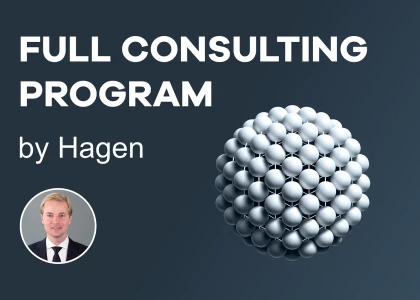I have interviews in the next three weeks for an internship with MBB (McKinsey, BCG, Bain), focused on case interviews. From my practice over the past two weeks, I've gotten used to taking cases, but I’ve noticed that I struggle with calculations, drawing conclusions, and understanding what a particular number means.
I often can't deliver a solid recommendation when I get lost in the calculations. I often set up the formulas correctly, but I find it particularly difficult when dealing with four or more numbers. Additionally, I’ve noticed that I take a long time to do the calculations, even when using shortcuts like k×k=m and so on.
Will this negatively affect me during the interview? I mean (long time to make calculations)
How should I improve calculations, drawing recommendations, and my judgment skills?
How many cases should I be taking in the upcoming weeks on a weekly/daily basis?















